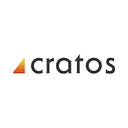Victories of Ethereum — Part 2
Now is the time to talk about how Ethereum philosophy determines its value. How do regulators, politicians, and cryptocurrencies interact? Why will services based on the Ethereum blockchain gradually replace their centralized systems? We will tell you further.
How Ethereum Philosophy Determines Coin Value
What’s the best way to understand any cryptocurrency? It is necessary to study the structure and cultural values of its cryptocommunity. Cryptocurrencies are actually “cryptocultures”. A lot of them. Each culture has its valuesabout the same technology. It is such a socio-technical mechanism where values and technologies are connected.
Cryptocurrencies acquire their value based on the scale of community engagement. This rule applies to any currency. For example, value can be derived from user demand, scarcity, or utility of a coin. The same thing about Ethereum. Its philosophy largely influences its value and affects its price.
Recently, Glen Weil, the last “ideological godfather” of the Ethereum community, charmed diplomats and bankers at the World Economic Forum. He inspired an activist movement promoted through the RadicalxChange Foundation. Equality can be achieved through free-market auctions, he says from the economic manifesto “Radical Markets”.
Further, we quote his words. The key is allocation mechanisms that come from predetermined historical hierarchies or structural biases. Together, the charismatic economist and pioneer of cryptography teamed up to advocate for the quadratic funding and governance of Ethereum, which Herzog likened to the results of legal reform in the United States.
Quadratic funding is a process where a certain amount of money is channeled to a cause or project. Expected donors determine the costs by increasing or comparing funds. A donor communication mechanism is being considered to encourage online donations.
Ethereum’s core value proposition today requires a question to be answered. What if we could use Programmable Transactions to reimagine anything in the financial services industry, from simple escrow accounts and trustees to capital raising, secured loans, product structuring, lending, and margin trading?
Ethereum is the first and largest blockchain for programming or the execution of digital “contracts”. That is, crypto-assets can exchange hands in a way that physical assets cannot. Programmable money blockchain, cryptoasset transaction becomes more complex. Let’s put it this way: “Alice sends the crypto asset X to Bob, but only after Carol confirms the possibility with this transaction.”
This may sound like an escrow transaction to you. This is how people buy goods while sitting at home. This is how companies that conclude M&A deals work. The key innovation of cryptocurrency is the absence of an escrow company, lawyers, or a bank. As a result, the process loses commissions, delays, and additional reactions and actions of the transaction’s participants.
Ethereum, regulators, and politics
Around the world, there is a growing interest by regulators. This is a process that is proportional to the increase in the number of investors. It is already becoming obvious how Western countries are moving towards more traditional regulation of securities, and authoritarian countries are banning private cryptocurrencies in favor of projects of their cryptocurrency, which will be controlled by the central bank of such a country.
Over the past 3 years, governments and public sector organizations have increasingly adopted blockchain as an alternative to disparate and ineffective centralized systems. Current systems are not secure and are expensive, and blockchain networks are always safer, more flexible, and more cost-effective.
The interest of regulators in the Ethereum blockchain is predictable.
Regulators have classified Ethereum as a “well-known cryptocurrency” for the past few years. It is said everywhere that, to mitigate risks, the two most popular currencies are the best options for most people.
Regulators accepting Ethereum more and more, as they see development prospects and a reliable base of users who trust the system, including sellers and buyers, and developers of various applications and services.
Essentially, Ethereum is not opposed to the state. However, some traders believe that this cryptocurrency provides a version of hidden minarchism, where Ethereum gives users a better infrastructure than the state. Everything goes to the fact that services on the Ethereum blockchain will gradually replace traditional centralized systems. Ethereum solutions are useful in different areas: organizational (decentralized autonomous organizations or DAOs), financial (decentralized finance or DeFi), cultural (non-fungible tokens / social tokens).
Conclusion
Ether is one of the most successful and promising cryptocurrencies, second only to Bitcoin. Ether is much cheaper today, but the phase of active development continues. New technological innovations and updates are constantly appearing here. Many experts believe that the latest update has given Ethereum the potential to withstand Bitcoin, which was showing tremendous volatility some time ago.
Regulators know Ethereum as a “well-known crypto asset,” which gives it a high credit score. With an ever-strengthening regulatory framework for regulating cryptocurrencies, there is no need to worry about Ethereum. The philosophy of this system, as well as the breadth of use, enables Ethereum to be flexible and displace analogous-anachronisms from our established world.
